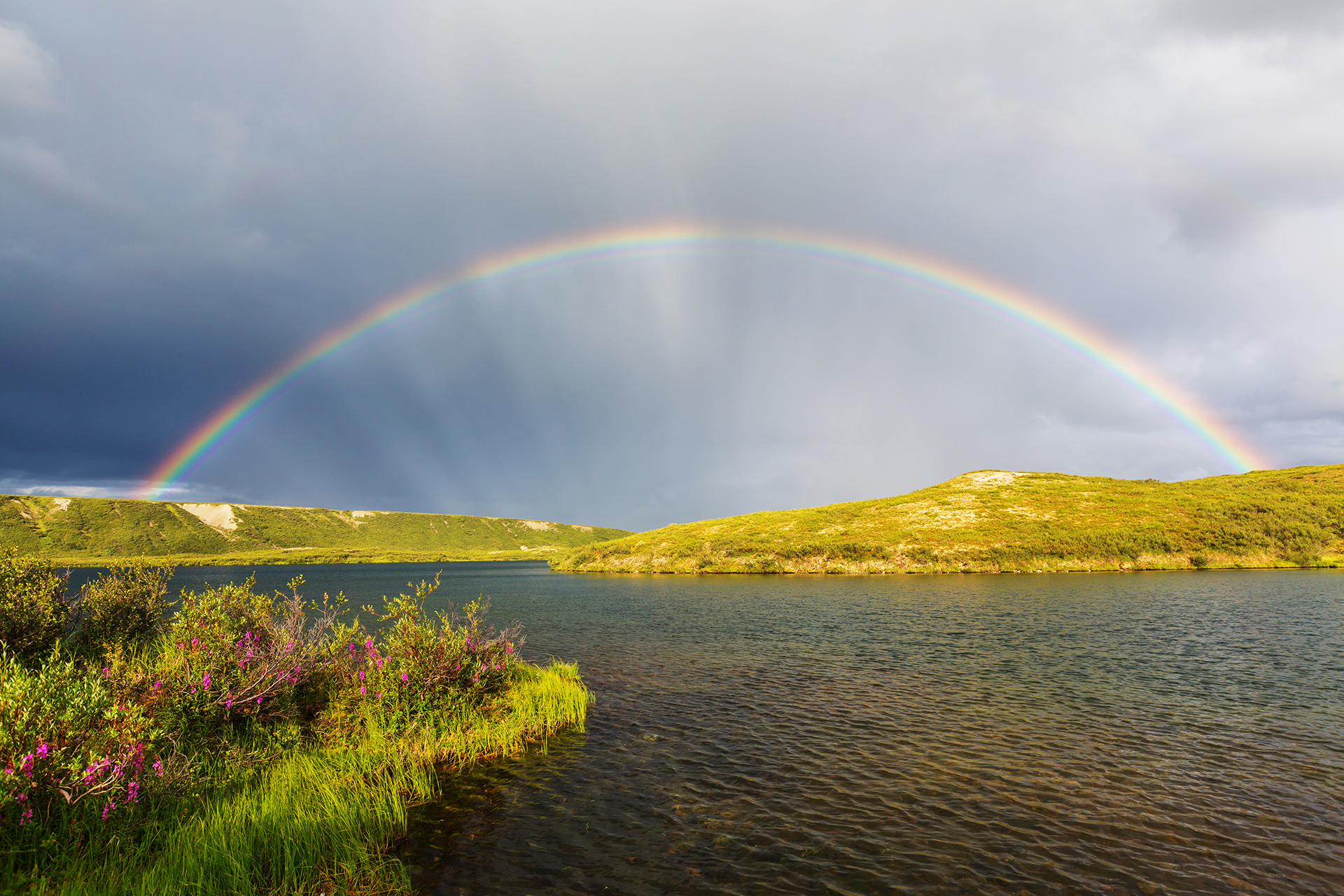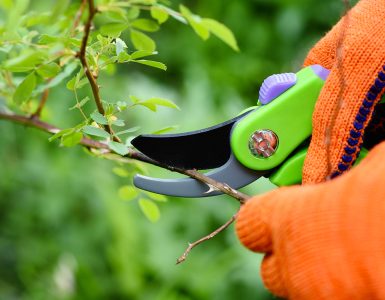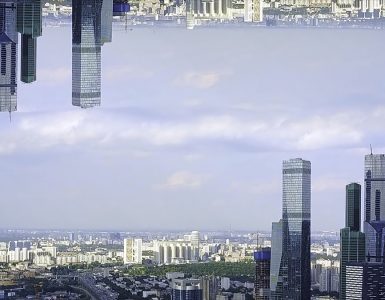The sun beat down on my back as I crouched by the water’s edge, my swollen belly pressing against my thighs. I, Lucy, had been feeling strange lately—not just because of the life growing inside me, but because of something else stirring within my mind. A restlessness. A knowing that went beyond the instincts that had guided our kind for generations.
Mother, I feel your thoughts changing, whispered the voice inside me. I didn’t hear it with my ears, but somehow I understood it as clearly as the rustle of leaves in the wind or the distant calls of the herd.
I placed my hand on my belly, feeling the gentle kick of my unborn child. Was it truly speaking to me, or was this new awareness playing tricks? Either way, I knew something profound was happening.
“We cannot stay here forever,” I murmured, watching as the water level of our once-abundant stream had receded further from yesterday’s mark—a notch I’d scratched into the smooth rock with a sharp stone. The dry season had lasted longer than any in my memory, and memories of abundance were fading like morning mist.
The others do not see what you see, the voice continued. They wait for things to return to how they were. But you know better.
I did know better. Something deep inside—perhaps what the elders called the “gut brain”—told me that waiting would lead to our end. The sweet fruits that once hung heavily from the twisted branches of the baobab trees had grown scarce. The tubers that my mother and her mother before her had taught me to dig from the rich soil were becoming harder to find. Each day, our group traveled farther to gather what we needed, always returning to the same shelter caves where we had dwelled for countless seasons.
Rising from my crouch, I waded into the cooling water, letting it soothe my aching feet. All around me, life persisted despite the changing world. A group of long-necked Dinofelis lapped at the water downstream, their powerful shoulders tensed, ready to leap at the slightest threat. These predators had become bolder as their prey grew scarce, venturing closer to our territory than ever before.
Overhead, a flock of Palaelodus—ancient flamingo-like birds with powerful wings and piercing calls—circled against the cerulean sky. They weren’t stopping here anymore. They were continuing their journey, following some inner knowing to more abundant waters.
“They understand,” I whispered, watching them grow smaller against the vast horizon. “They follow the knowing.”
Yes, mother. They listen to what the world tells them. As must we.
I turned my gaze toward our home—a series of shallow caves nestled within a cliff face of red sandstone. The rock had been worn smooth by countless seasons of wind and rain, creating natural shelters that had protected our kind for generations. Beyond the cliff, a vast savanna stretched toward distant blue mountains—mountains that seemed to call to me lately, whispering promises of green valleys and fresh waters.
Between our caves and the stream lay a patchwork of grassland and scattered acacia trees, their thorny branches spreading like protective hands over the golden grasses below. The Deinotherium—massive elephant-like creatures with downward-curving tusks—were fewer each season, their trails leading away from our territory toward those same distant mountains.
“Everything is leaving,” I said to no one and everyone at once.
But we stay. The voice sounded almost sad. Why do we stay, mother?
It was a question I’d been asking myself with increasing frequency. Why did we cling to this place when the signs were clear? The elders said this was where we belonged, where we had always been. But something within me—perhaps what the old ones called the “heart brain”—told me that staying meant slowly withering away.
I waded back to shore, my feet sinking into the soft mud of the bank. A small group of Sivatherium—strange giraffe-like creatures with elaborate, branching horns—moved cautiously toward the water. They were thinner than I remembered, their ribs visible beneath dull hides that once glistened with health.
As I watched them, I noticed how they moved—awkward yet effective, their long legs carrying them across the uneven terrain with a grace that our kind lacked. We scuttled on all fours, our knuckles dragging through the dirt, our movements quick but limited. The Sivatherium could see far above the grasses, could spot predators and opportunities that remained hidden to us.
I straightened slightly, rising higher on my haunches. The world looked different from here—broader, more expansive. I could see farther across the savanna, could make out details that remained hidden when I stooped close to the ground.
Mother, you’re standing differently, the voice observed.
“I am,” I replied, surprised at how natural it felt to straighten my spine, to lift my head higher. My back ached slightly from the unfamiliar posture, but something about it felt… right. As if my body had been waiting for my mind to realize this possibility.
A memory surfaced—not my own, but something deeper, something passed down through countless generations. A knowing that our bodies contained the potential for transformation. That we were not fixed in our way of being but could adapt as the world around us changed.
I took a tentative step forward, still partially supported by my knuckles but more upright than I had ever been before. My heavy belly shifted, pulling me forward, and I instinctively compensated by straightening even more.
Mother, you’re standing up!
Was I? I glanced down at my shadow stretching across the mud—longer, taller than it had ever been. Fear and exhilaration coursed through me in equal measure. This wasn’t how our kind moved. What would the others think? What would the elders say?
But the voice inside me seemed to sense my hesitation. This is right. This is the knowing that you know. The standing up that must happen.
I took another step, wobbling slightly but managing to maintain my semi-upright posture. My hands, freed from bearing my full weight, could now grasp, could now carry. I reached out and plucked a small red berry from a nearby bush—a simple action that would have required me to stop, to bend, to use my mouth if I were still on all fours.
“This changes everything,” I whispered, rolling the berry between my fingers, experiencing its texture in a way I never had before.
Yes, mother. And it is only the beginning.
As the sun reached its zenith, I made my way back toward our caves, still practicing this new way of moving. With each step, my confidence grew, though my muscles protested against the unfamiliar strain. I wasn’t fully upright—my body wasn’t yet ready for that—but I was more vertical than horizontal, and the world looked remarkably different from this new vantage point.
The dense thicket of Dombeya trees that bordered our territory revealed new secrets from this height. I could see the plump fruits hidden among the heart-shaped leaves, fruits that had gone unnoticed when our eyes were kept close to the ground. I could spot the movement of small prey animals in the distant grasses, could gauge the distance to water sources more accurately.
“So much we’ve been missing,” I murmured, reaching up to pluck one of the sweet Dombeya fruits. Its flesh was firm and filled with tiny seeds, but the juice that ran down my chin as I bit into it was sweeter than anything I’d tasted in many moons.
You can see what others cannot, came the voice within. You can reach what others cannot.
I continued my journey, passing beneath the massive branches of an ancient baobab tree. Its trunk was scarred with the claw marks of countless generations of our kind who had climbed its rough surface to escape predators or reach its fruit. But now, standing taller, I could reach the lower branches without climbing.
The first signs of our group came into view—discarded fruit rinds, a few scattered tools made from river stones, the remains of yesterday’s fire. The use of fire was still new to us, discovered by accident during the last great storm when lightning had struck a dead tree. We had learned to keep it burning, to feed it with dry grasses and branches, but creating it anew remained beyond our understanding.
I spotted Kara, one of the elder females, using a sharp stone to scrape meat from an animal hide. Her movements were practiced, efficient, but she remained hunched close to the ground, her spine curved in the way of our kind.
As I approached, still walking in my new semi-upright manner, Kara looked up. Her eyes widened, her hands stilling in their work.
“Lucy,” she said, her voice thick with confusion and concern. “What has happened to you? Are you injured?”
I shook my head, suddenly self-conscious but determined. “Not injured. Changed. I can see more this way. I can carry things while I walk.” To demonstrate, I held out the handful of Dombeya fruits I had gathered.
Kara’s expression shifted from concern to something more complex—fear mixed with curiosity. “This is not our way,” she said finally. “The elders will not approve.”
“Our way is not working anymore,” I replied, lowering myself to sit beside her, my belly making the movement awkward. “The food grows scarce. The water recedes. The animals leave. If we stay as we are, we will not survive.”
Tell her about the knowing, urged the voice within me. Tell her about the dreams.
I hesitated. The dreams that had come to me since my child began to grow inside me were strange and difficult to explain. Visions of our kind walking fully upright, using our hands to create tools more complex than any we had imagined, communicating in ways beyond our current understanding.
“I have been dreaming,” I said finally, watching Kara’s reaction carefully. Dreams were significant to our kind—often seen as messages from ancestors or warnings about dangers to come. “I dream of us standing tall, like the Australopithecus people to the west. I dream of us walking far distances, finding new territories rich with food and water.”
Kara’s eyes narrowed. “The Australopithecus are not like us. They are strange ones who cannot climb the trees for safety. Many are taken by predators.”
“But they travel,” I countered. “They adapt. They find new places when the old ones can no longer sustain them. And they use their hands in ways we have only begun to understand.”
I picked up one of Kara’s stone tools—a simple scraper formed by striking one rock against another until a sharp edge formed. “Imagine what we could create if our hands were free all the time. Not just when we sit to work, but always.”
Yes, mother. Tools that cut. Tools that carry. Tools that build.
Kara was silent for a long moment, her weathered face unreadable. Then, slowly, she placed her hands on the ground and pushed herself up, straightening her spine slightly in an awkward imitation of my posture.
“It hurts,” she said, wincing as her back muscles protested.
“At first,” I agreed. “But then it becomes… I don’t know how to explain it. It feels like remembering something forgotten.”
Like waking up, added the voice inside me.
“Like waking up,” I repeated aloud.
Kara lowered herself back to her more familiar posture with a small grunt. “The young ones might adapt,” she said finally. “But for me, it is too late. My body knows its ways too well to learn new ones.”
I understood then that change would not come all at once, not for everyone. It would be the young ones, those whose bodies and minds were still forming, who would most readily embrace this new way of being. And the children they would bear, like the one growing inside me, would find it even more natural.
“The elders speak of the Three Knowings,” Kara continued, returning to her work on the hide. “The knowing of the gut.” She patted her belly. “The knowing of the heart.” Her hand moved to her chest. “And the knowing of the head.” She touched her temple. “Perhaps your dreams come from all three knowings speaking together.”
She understands, whispered the voice. Not completely, but she senses the truth of it.
I nodded, placing my hand on my swollen belly where my child shifted and turned. “The Three Knowings becoming one. Yes, that feels right.”
The night brought a gathering around the fire, as it always did. The flames cast flickering shadows against the rock face of our home, turning familiar faces into mysterious masks that shifted and changed with each movement. The air was filled with the smells of roasted tubers and the small rodents that the hunters had brought back—not enough to fully satisfy our hunger, but enough to sustain us for another day.
I sat at the edge of the circle, still maintaining my semi-upright posture even while seated. Throughout the day, I had practiced this new way of being, and while my muscles ached, I found that certain positions allowed me to rest while still keeping my spine straighter than before.
The elders were watching me. I could feel their eyes, curious and wary. Word had spread quickly about my strange new way of moving, and opinions were divided. Some, like Kara, showed cautious interest. Others muttered about disrespect for our traditions, for the ways that had sustained us since the beginning of memory.
Talo, the oldest male of our group, his face deeply lined with the marks of many seasons, finally addressed me directly. “Lucy,” he said, his voice gravelly from years of calling the group together. “Kara tells us you have had dreams that make you walk like the strange ones from the west.”
All conversation ceased. Every eye turned toward me, waiting.
Speak the truth, mother. Speak of what you know.
I took a deep breath, gathering my thoughts. How could I explain what I barely understood myself? This wasn’t just about walking differently. It was about seeing differently, thinking differently, being differently.
“I have dreamed,” I began, “but the dreams only showed what I already knew in my gut, in my heart, in my head.” I touched each part of my body as Kara had done earlier. “Our world is changing. The waters recede. The fruits grow scarce. The prey animals leave for greener territories. And we stay, growing hungrier with each passing moon.”
Murmurs rippled through the gathering, but no one interrupted. They knew I spoke the truth, even if they didn’t want to face it.
“In my dreams, I see us walking tall, our hands free to carry food, to make better tools, to care for our young differently. I see us traveling far, finding new places where water flows abundantly and food grows plentifully. I see us surviving.”
Talo’s expression remained stern, but there was a flicker of something else in his eyes—recognition, perhaps, or resignation. “The ways of our ancestors have sustained us through many challenging seasons,” he said. “When the rains failed before, they eventually returned. When the fruits disappeared, they grew again. This is the cycle of life.”
“But what if this time is different?” I challenged, surprising myself with my boldness. Speaking against the elders wasn’t our way, but neither was perishing from stubbornness. “What if waiting means starving? What if the cycles are changing as the world changes?”
The knowing that you know, whispered the voice. Trust it.
A younger male, Naro, leaned forward. “I have traveled farther than the others while hunting,” he said. “Three days’ journey toward the rising sun, the streams are dry riverbeds. The herds move toward the setting sun, toward the distant mountains. I think Lucy speaks truth.”
This admission caused another wave of murmurs, louder this time. Naro was one of our most skilled hunters, respected for his observations of animal behavior and weather patterns.
“And I have noticed,” added a young female named Sira, “that when I reach high into the trees for fruit, standing as Lucy does makes it easier. My hands are steadier. I can grasp more surely.”
I felt a surge of gratitude for these voices of support, these acknowledgments that what I had discovered wasn’t merely a strange fancy but something of practical value.
Talo raised his hands, calling for silence. “These are serious matters that cannot be decided in a single night,” he said. “We will watch. We will consider. Those who wish to try this new way of moving may do so. Those who prefer our traditional ways will continue as before. When the next full moon comes, we will speak again of what we have learned.”
It wasn’t a full endorsement, but neither was it a rejection. It was an opening—a chance for this new knowledge to prove its worth through practice and observation. For our kind, who learned primarily through imitation and experience rather than abstract instruction, it was the most natural approach.
It begins, said the voice inside me. Slowly, but it begins.
“There is something else,” I said, placing my hands on my belly. “The child within me speaks in my thoughts. Not with sounds like we make with our mouths, but with meanings that I understand nonetheless. It speaks of these changes as necessary, as right. It speaks of knowing that goes beyond what we have known before.”
This statement caused a deeper silence, heavy with uncertainty and wonder. Communication with the unborn was not unknown among our kind—many mothers reported sensing their children’s needs or feelings. But what I described was something more specific, more articulate.
“The old stories,” said Mela, one of the eldest females, her voice quavering with age, “speak of a time when our ancestors could hear the thoughts of animals, of trees, of stones. When all living things spoke the same silent language of knowing. Perhaps the children remember what we have forgotten.”
Yes, the voice confirmed. The remembering. The reconnecting.
The fire crackled, sending a shower of sparks upward toward the star-filled sky. For a moment, it seemed as if those sparks continued upward, becoming new stars, connecting us to the vastness above.
“Tomorrow,” I said, filled with sudden certainty, “I will show any who wish to learn how to stand taller, how to walk with hands free. And together, we will discover what new things we can create, what new ways we can live.”
Dawn broke with a palette of fiery oranges and deep purples streaking across the eastern sky. I had slept fitfully, my dreams filled with journeys across vast landscapes, my body moving in ways both familiar and strange. The child within me had been active throughout the night, as if eager for the day to begin, for this new chapter of our existence to unfold.
Today changes everything, it said as I awoke, my hands instinctively cradling my swollen belly. Today, many will begin to stand up.
I made my way down to the small clearing near the stream where we often gathered for morning meals. To my surprise, several others were already there, including Sira and Naro, and even a few of the younger children. They watched me intently as I approached, their eyes tracking my semi-upright gait with open curiosity.
“You wish to learn?” I asked, though the answer was obvious in their expectant postures.
Sira nodded eagerly. “Show us how to begin.”
I considered where to start. This new way of moving wasn’t something I had learned through instruction but through intuition and experimentation. How could I teach what had come to me as a form of remembering rather than learning?
Start with what the body already knows, suggested the voice. Start with reaching.
“Watch how we already reach for high fruits,” I said, demonstrating how our kind would naturally straighten somewhat when stretching upward. “Our bodies already know how to be more upright. We simply haven’t asked them to maintain it while moving.”
I guided them through simple exercises—reaching for imaginary fruits, holding the stretched position for longer periods, shifting weight from one foot to the other while maintaining height. Some adapted quickly, their younger, more flexible bodies responding to these new demands with minimal discomfort. Others struggled, muscles trembling with the unfamiliar strain.
“It hurts,” complained one of the younger males.
“Yes,” I acknowledged. “But less each time you practice. The body learns. The body remembers.”
We continued our experiments as the sun climbed higher in the sky. I showed them how to use a stick for support when the new posture became too tiring, how to shift their weight backward to balance the forward pull of the upper body. Small discoveries led to moments of delight—the realization that eyes positioned higher could spot potential predators from greater distances, that hands freed from locomotion could carry more gathered foods, that communication through gestures became more elaborate when hands weren’t needed for movement.
By midday, several of the younger members of our group were walking with notably more upright postures, though still not fully erect as the Australopithecus people were said to be. It was a beginning, a first tentative step toward a new way of being.
As we rested in the shade of a cluster of acacia trees, their feathery leaves providing dappled shelter from the intense sun, Naro approached me with something clutched in his hand.
“Look what I made,” he said, opening his palm to reveal a small tool. It was similar to our usual stone scrapers but with a crucial difference—a crude handle had been attached, bound with strips of plant fiber. “When my hands are free while walking, I can think about how to make tools better. This fits the hand more comfortably.”
I took the tool, turning it over in my fingers, marveling at this simple innovation that had emerged in just one morning of changed perspective. “This is exactly what I saw in my dreams,” I said softly. “Not this specific tool, but the way our minds would open to new possibilities once our bodies changed.”
Naro nodded, his eyes bright with excitement. “I’m thinking of other tools we could create. Ways to carry water over distances. Better ways to cut meat or dig for roots.”
The hands shape the world, whispered the voice within me. And in shaping the world, they shape the mind.
The afternoon brought more experiments, more discoveries. Sira found that carrying her youngest child against her chest rather than on her back was easier with the more upright posture, leaving one hand free for gathering while walking. This simple change meant she could travel farther from the caves while foraging, accessing areas that had previously been impractical to visit while caring for a small child.
Even some of the more skeptical members of our group had begun to observe our activities with increasing interest. I noticed Kara watching from a distance, her expression thoughtful as she observed the younger ones practicing their new way of moving.
By the time the sun began its descent toward the western horizon, casting long shadows across the savanna, nearly a third of our group had at least attempted this new posture. Some had already returned to traditional ways, finding the discomfort too great or the benefits too subtle for their current needs. But others persisted, driven by curiosity, by practical advantages, or by some deeper intuition similar to what had first prompted me to stand taller.
As twilight gathered, I found myself standing at the edge of our territory, gazing toward the distant mountains that had been calling to me in my dreams. They were barely visible now, just dark shapes against the fading light, but I knew they were there—and beyond them, territories unknown to us, possibly rich with resources that could sustain us through the changing times ahead.
That is where we must go, said the voice, its tone more certain than ever. Not tomorrow, not the next day. But soon. When enough have learned to stand, to walk new paths, to see with new eyes.
“Yes,” I agreed aloud. “Soon.”
I felt a presence beside me and turned to find Talo, the elder who had neither endorsed nor forbidden our day’s activities. He, too, was gazing toward the mountains, his weathered face unreadable in the gathering darkness.
“The young ones follow your example quickly,” he said after a long silence. “They adapt as the young always do.”
I waited, sensing he had more to say.
“In my youth,” he continued, “the waters flowed more abundantly. The fruits hung lower on the branches. The herds were so vast they took days to pass by our territory.” He sighed, a sound heavy with memory and loss. “Each generation has seen less than the one before. Each generation has had to work harder to survive.”
“And you think this will continue?” I asked gently.
He nodded slowly. “Unless we change. Unless we find new ways to live in a world that no longer resembles the one our ancestors knew.” He turned to face me directly. “Your dreams… they are not just about standing taller, are they? They are about leaving this place. About finding new territories.”
He understands, whispered the voice. He has always understood but feared the enormity of change.
“Yes,” I admitted. “Standing is just the beginning. With this new way of moving, we could travel farther than we ever have before. We could cross territories that were previously too dangerous or too distant. We could find places where water still flows abundantly, where food still grows plentifully.”
Talo was silent for a long moment, his eyes now fixed on the first stars appearing in the darkening sky. “Such a journey would be perilous,” he said finally. “Many might not survive.”
“Staying might be more perilous still,” I countered. “Each season, our young grow weaker. Each season, fewer children survive their first year. If we remain while the world around us changes, we doom ourselves to a slow fading.”
He couldn’t argue with this truth that we all witnessed but rarely spoke of aloud.
“How long?” he asked. “How long before you would have us leave the only home we have ever known?”
I considered the question carefully. Such a journey would require preparation—not just physical training in this new way of moving but mental preparation as well. We would need to develop better tools for carrying food and water, better strategies for protecting ourselves from predators in unfamiliar territories. We would need to observe the movements of migratory animals more carefully, perhaps following their ancient pathways to water sources and feeding grounds.
“One full cycle of seasons,” I said finally. “Through the dry time, through the rains, through the flowering, through the ripening. Time to strengthen our bodies, to create what we need, to learn from the animals that have always known how to find new homes when the old ones no longer sustain them.”
Talo nodded slowly. “A reasonable time. Long enough for all to prepare, for the elders to pass on their knowledge of the stars and weather signs that guide travelers. For the young to grow strong enough for such a journey.” He paused, then added, “And long enough for those who wish to remain to make their peace with that choice.”
I hadn’t considered that some might choose to stay behind, to cling to the familiar even as it slowly failed them. The thought brought a sharp pang of sadness.
Not all can change, the voice reminded me. Not all are meant to. Each follows their own knowing.
“Those who stay will carry the memory of this place,” I said. “Those who journey will carry the memory of those who stayed. In this way, nothing is truly lost.”
Talo seemed satisfied with this response. “Tomorrow,” he said, “I will ask you to show me how to stand taller. My old bones may protest, but my eyes still wish to see new horizons before they close for the final time.”
With that, he turned and made his way back toward the caves, his familiar hunched silhouette gradually disappearing into the gathering darkness.
I remained by the edge of our territory a while longer, one hand resting on my belly where my child shifted and turned, perhaps dreaming its own dreams of the journey ahead. The stars emerged one by one, filling the vast dome of the night sky with their ancient light—light that had traveled unimaginable distances to reach my eyes.
We, too, will travel, whispered the voice inside me. We will follow the knowing that we know. We will stand up and walk into a new world of our making.
“Yes,” I agreed, feeling a profound sense of peace settle over me despite the enormity of the changes to come. “We will stand up. And in standing, we will see farther than we ever have before.”
I turned at last and made my way back toward the warmth and safety of our caves—the last home we would know in this territory that had nurtured our kind for countless generations. Each step I took was more confident than the last, my spine a little straighter, my gaze a little higher.
The future beckoned, and for the first time in memory, we would meet it standing tall.



































